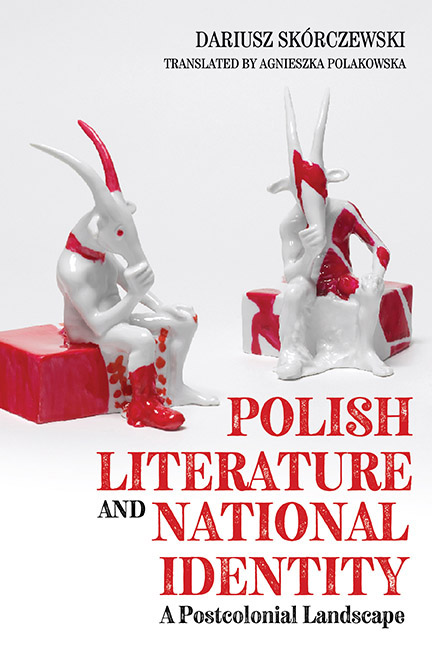Book contents
- Frontmatter
- Dedication
- Contents
- Acknowledgments
- Prologue: How It All Began
- 1 Through the Lens of Humanism, with a View to Transcendence
- 2 Postcolonialism in Poland
- 3 National Identity in a Postcolonial Framework: Necessary Clarifications and Opening Suggestions
- 4 Literature as Compensation: Comprador Intelligentsia vis-à-vis the Hegemonic Discourse—Preliminary Theoretical Remarks
- 5 Confronting the Romantic Legacy
- 6 The Natives’ Exclusion by the Empire's Poet? (Adam Mickiewicz, The Crimean Sonnets)
- 7 Identity as an Object of Inquiry (Pawel Huelle's Castorp)
- 8 The (East-)Central European Complex (Andrzej Stasiuk, On the Road to Babadag and Fado)
- 9 Colonized Poland, Orientalized Poland: Postcolonial Theory and the “Other Europe”
- 10 Slavic Issues with Identity: Marginal Notes to Maria Janion's Uncanny Slavdom
- 11 The Melancholia of Borderlands Discourse
- Afterword: Three Warnings
- Notes
- Bibliography
- Index
6 - The Natives’ Exclusion by the Empire's Poet? (Adam Mickiewicz, The Crimean Sonnets)
Published online by Cambridge University Press: 25 March 2020
- Frontmatter
- Dedication
- Contents
- Acknowledgments
- Prologue: How It All Began
- 1 Through the Lens of Humanism, with a View to Transcendence
- 2 Postcolonialism in Poland
- 3 National Identity in a Postcolonial Framework: Necessary Clarifications and Opening Suggestions
- 4 Literature as Compensation: Comprador Intelligentsia vis-à-vis the Hegemonic Discourse—Preliminary Theoretical Remarks
- 5 Confronting the Romantic Legacy
- 6 The Natives’ Exclusion by the Empire's Poet? (Adam Mickiewicz, The Crimean Sonnets)
- 7 Identity as an Object of Inquiry (Pawel Huelle's Castorp)
- 8 The (East-)Central European Complex (Andrzej Stasiuk, On the Road to Babadag and Fado)
- 9 Colonized Poland, Orientalized Poland: Postcolonial Theory and the “Other Europe”
- 10 Slavic Issues with Identity: Marginal Notes to Maria Janion's Uncanny Slavdom
- 11 The Melancholia of Borderlands Discourse
- Afterword: Three Warnings
- Notes
- Bibliography
- Index
Summary
Our departure point is a true story. In 1908, King Leopold II of Belgium, the self-appointed “liberator” of lands he had seized more than twenty years earlier and called the Congo Free State (now the Democratic Republic of Congo), finally gave up his claim on the African territories. As the author of some of the most extreme atrocities in the history of Africa, Leopold knew well the secrets held in his state archives. Aware of this inconvenient legacy, he ordered that the archives of the Congo Free State in Brussels be destroyed. It took eight days to burn the collected documents. The occasion prompted Leopold to remark to his military advisor, Gustave Stinglhamber, that “I will give them my Congo, but they have no right to know what I did there.” In this manner, he not only got rid of the evidence of the crimes committed by the hegemon but also erased the textual traces of the hegemon's presence. This anecdote demonstrates one of many strategies used in colonial discourse to solidify its position as the exclusive source and medium of authoritative knowledge about the world. As long as this discourse has institutional support and is the only voice heard within the realm of politics and culture, its status remains secure, and the image of the metropolis and the periphery it creates becomes validated and “true.” In other words, it is taken to be factual, and it is respected as uncontestable.
This strategy depends on the rhetorical rule of detraction (removal). For empires, elision and silence are convenient camouflage for the violence they perpetrated. It can be effected in various ways and pertains not only to “hard” colonial discourse, for instance the actions of the empire's administrators (as was the case in the anecdote above), but also its “soft” forms, such as literary representations. For colonialism, understood as a system of a multichannel distribution of imperial power based on territorial annexation and human exploitation, creates and promotes a myth of the colonizer to convince the subjugated populace along with the rest of the world that the values and ideas held by the metropolis are superior to those of the colonized people, that they are universal and uncontestable and thus deserving respect and acceptance. This politics of self-representation, which typifies all authoritarian rule, is an especially prominent element of the civilizing mission of modern-day empires.
- Type
- Chapter
- Information
- Polish Literature and National IdentityA Postcolonial Landscape, pp. 116 - 135Publisher: Boydell & BrewerPrint publication year: 2020



